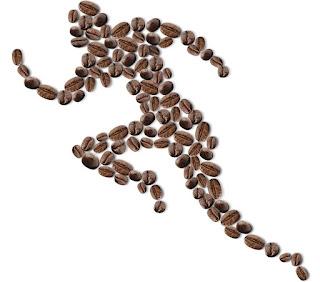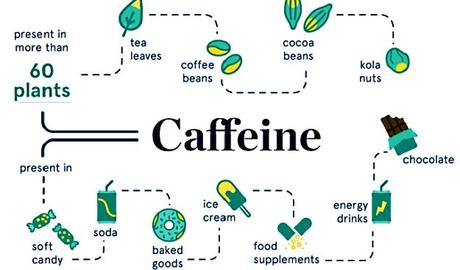
Caffeine and running, two words that seem to go together like peas and carrots, like Batman and Robin, like...well, you get the picture. It's no secret that caffeine is a staple pre-workout drink for many runners, but do you really know what it's doing to your body and performance?
Let's dive in and find out!
First things first, let's talk about what caffeine actually is.
Caffeine is a central nervous system stimulant that works by blocking the action of adenosine, a neurotransmitter that makes you feel tired (oooppss, don't nose bleed yet). Basically in layman's term, when you drink that cup of coffee before your run, you're essentially telling your brain to keep awake, alert, and focused.
And who wouldn't want that when they're about to lace up their running shoes?
Now, onto the juicy part - how does caffeine affect your running performance? Well, studies have shown that caffeine can improve endurance, reduce perceived exertion, and even help you run faster.
That's right, you can run faster just by drinking coffee! Now, who said caffeine was just a morning pick-me-up?
But wait, there's more!
Caffeine has also been shown to improve focus and reaction time, which can come in handy when you're dodging squirrels, dodging other runners, or just trying to avoid tripping on the pavement. And let's not forget, caffeine can also reduce pain and muscle soreness post-run, which is great news for those who like to push themselves to the limit.
Now, before you go chugging down a whole pot of coffee, let's talk about the right amount of caffeine to take.
Most studies have shown that a dose of 3-6 milligrams of caffeine per kilogram of body weight can be beneficial for running performance. For a 150-pound person (68.181818... kg), that's roughly 200-400 milligrams of caffeine, which is the equivalent of 2-4 cups of coffee.
It's important to note that too much caffeine can also have negative effects, so it's best to stick to the recommended dose. Excessive caffeine can lead to jitters, anxiety, and dehydration, all of which can negatively impact your run.
And who wants to feel like a nervous, jittery mess while they're trying to break their personal best?
Now, let's talk about timing. When is the best time to consume caffeine before a run?
Well, experts recommend drinking caffeine 30-60 minutes before your run to allow it to take effect. And, as with anything in life, timing is key. If you drink it too early, you might end up feeling jittery and anxious, and if you drink it too late, you might not feel the benefits. It's like trying to catch a runaway train - you've got to time it just right!

Lastly, the different sources of caffeine.
While coffee is the most popular form of caffeine for runners, it's not the only option. Caffeine can also be found in energy drinks, gels, and even chewable tablets. So, whether you prefer your caffeine in liquid or solid form, there's an option out there for you.
As for me who is not really a coffee drinker, I'll stick to chocolate bars and drinks. I especially love the dark ones, those darker than my skin.
The amount of caffeine in chocolate varies depending on the type and serving size, but on average, a 1-ounce serving of dark chocolate (70-85% cacao) contains approximately 12 milligrams of caffeine. In comparison, a 1-ounce serving of brewed coffee contains approximately 30-50 milligrams of caffeine.
So there you have it, folks! Who said science couldn't be fun? Grab your running shoes and a cup of coffee, and get ready to hit the pavement with a caffeine boost!
